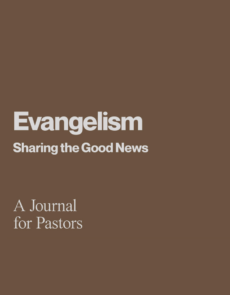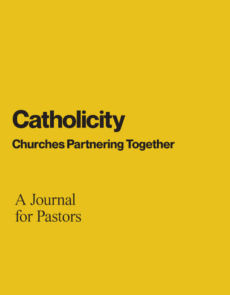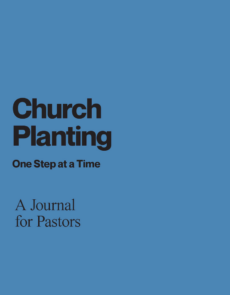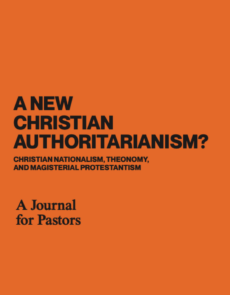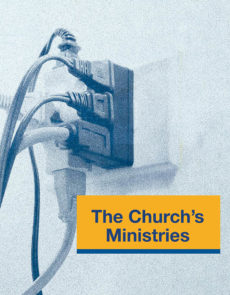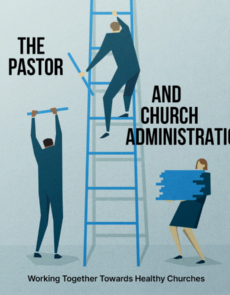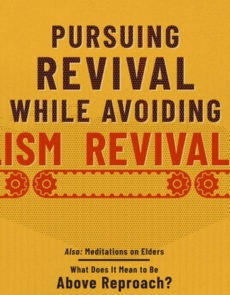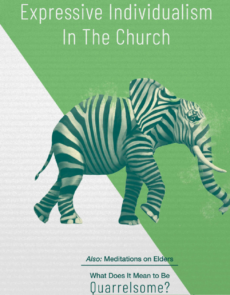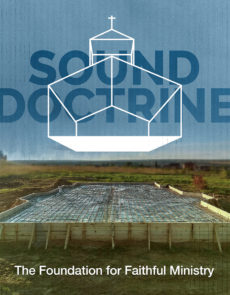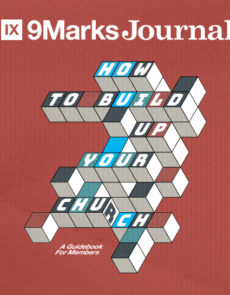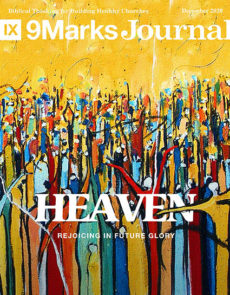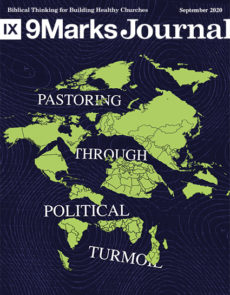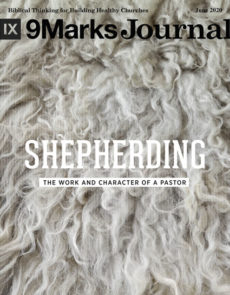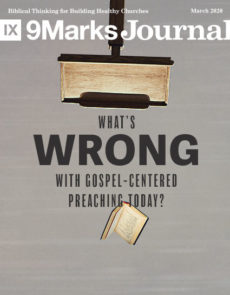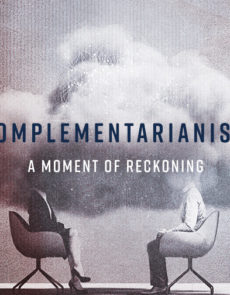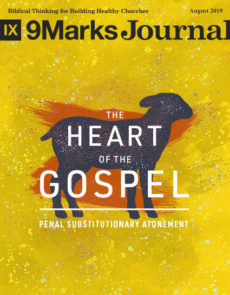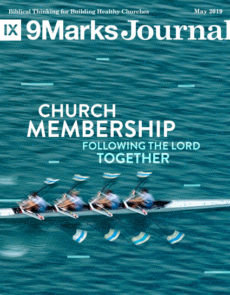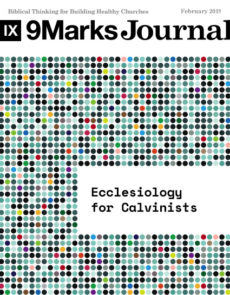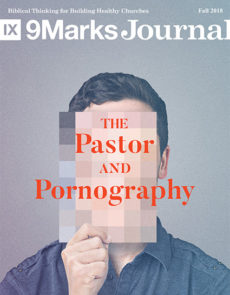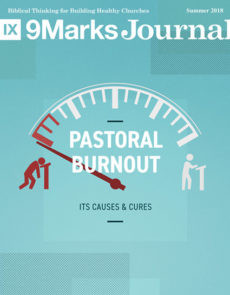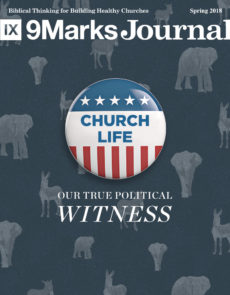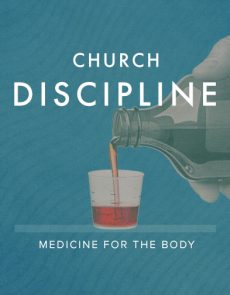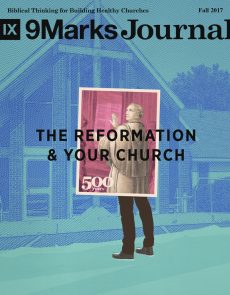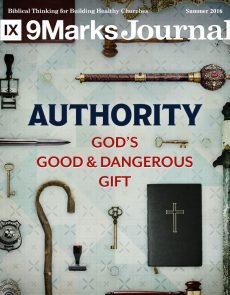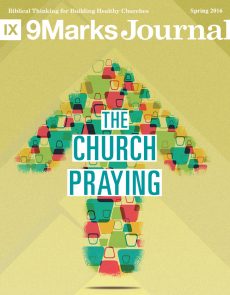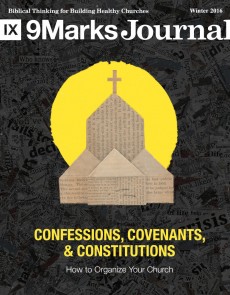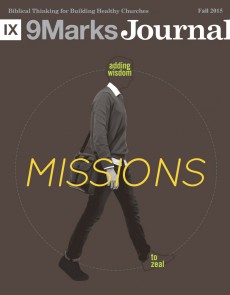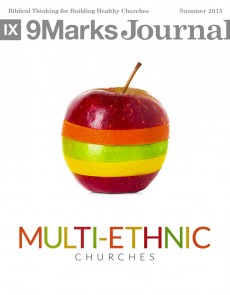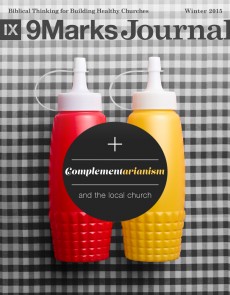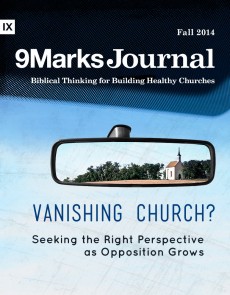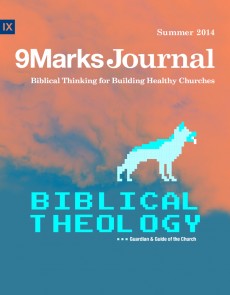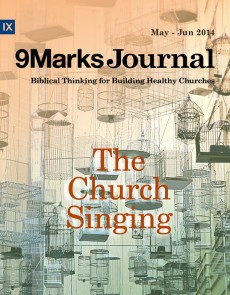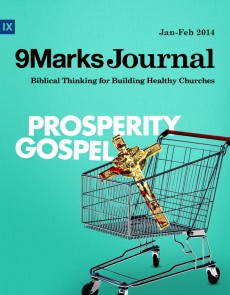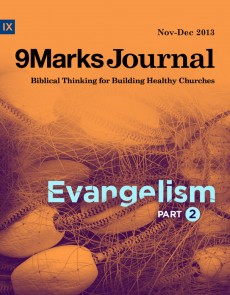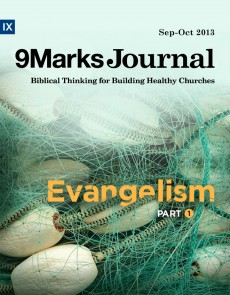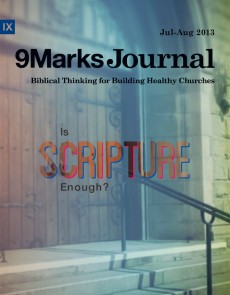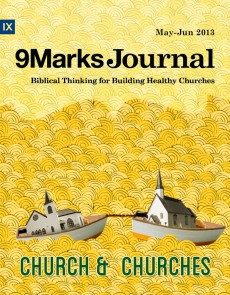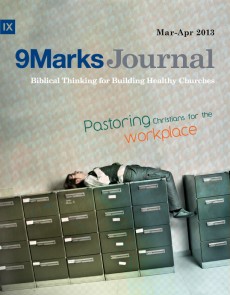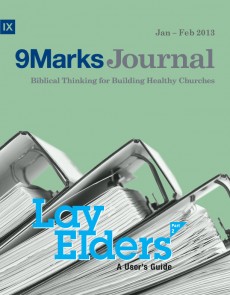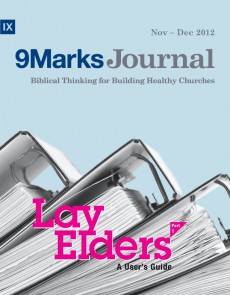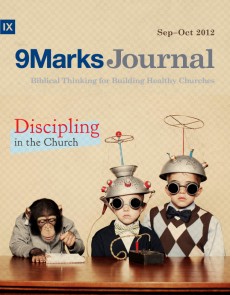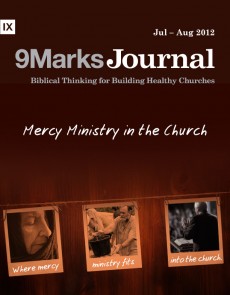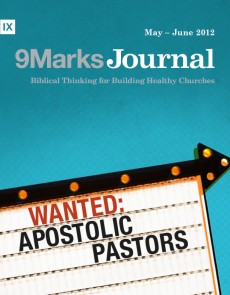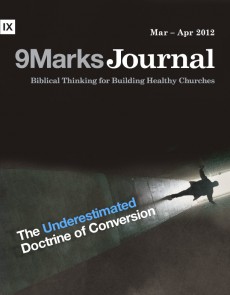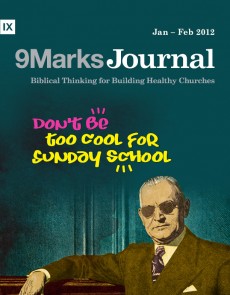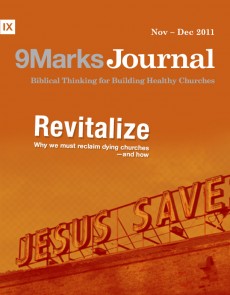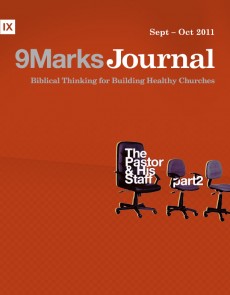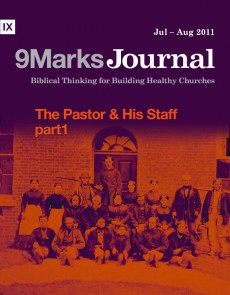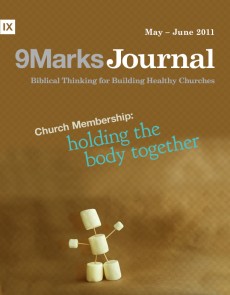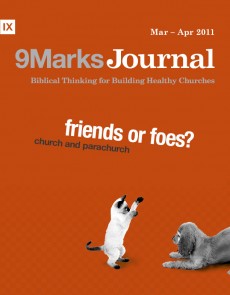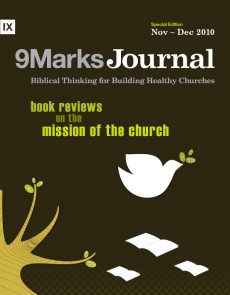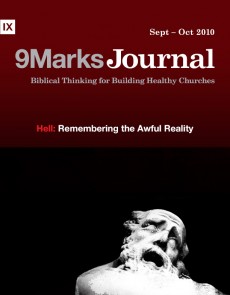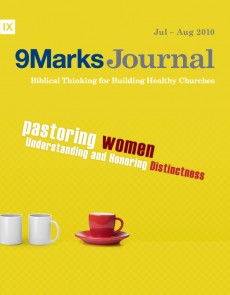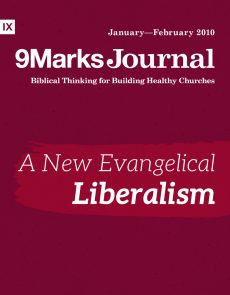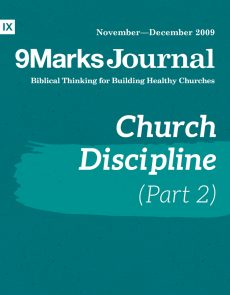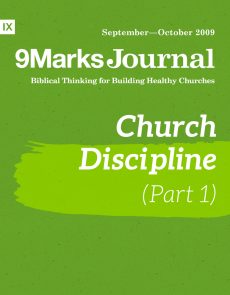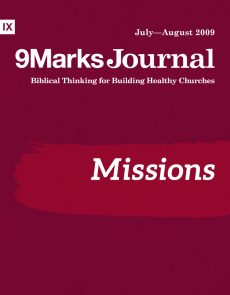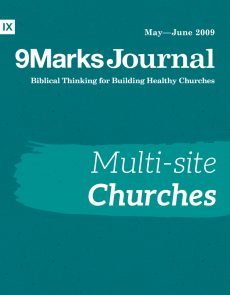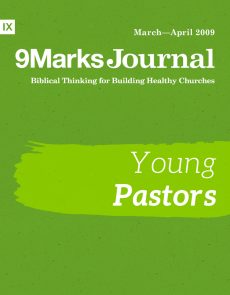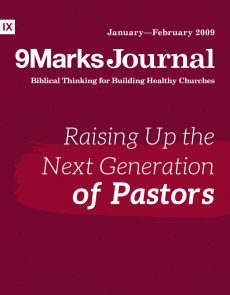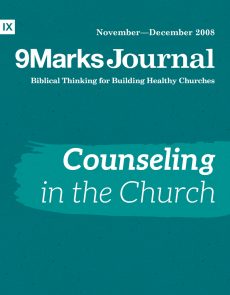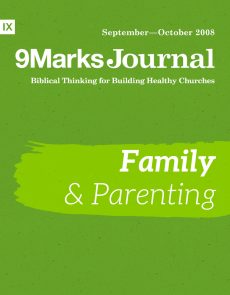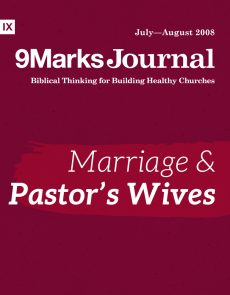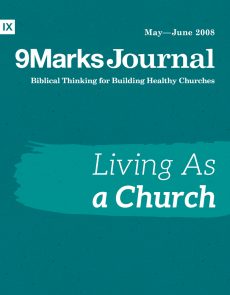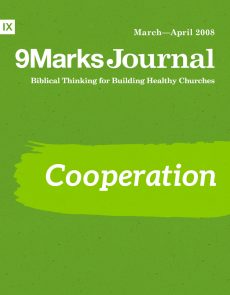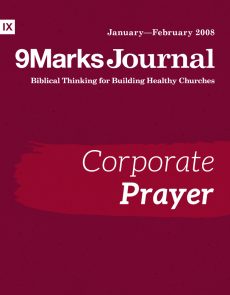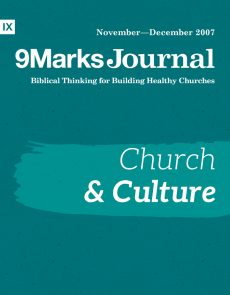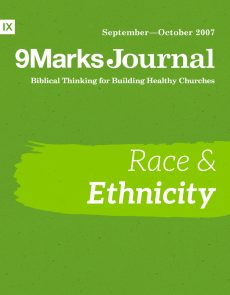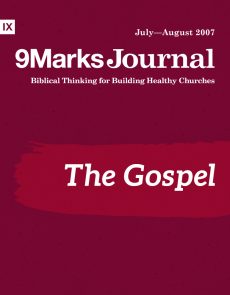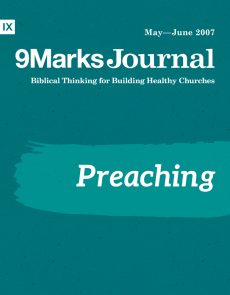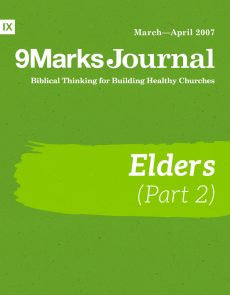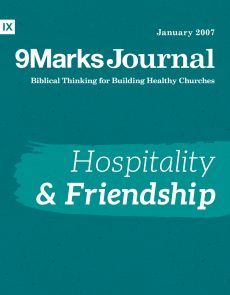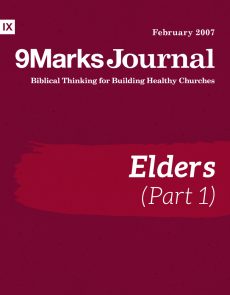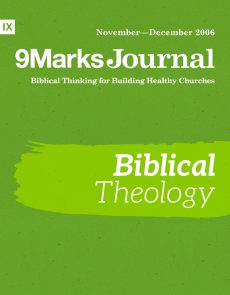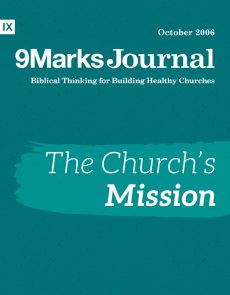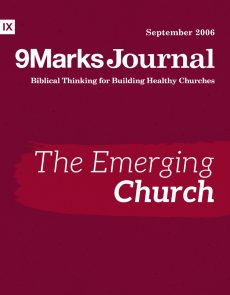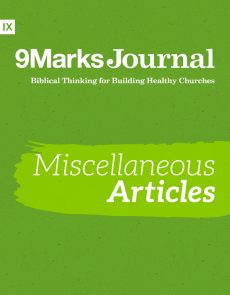SOUND DOCTRINE FOR FAITHFUL SHEPHERDS

Jesus Cared About Doctrine
By Samuel Parkison | 9Marks Journal: Sound Doctrine: The Foundation for Faithful Ministry | 11.16.2021When we pit doctrine against devotion to Christ, we pit Christ against himself.

Why We Need Pastor-Theologians in the Church
By Kevin DeYoung | 9Marks Journal: Sound Doctrine: The Foundation for Faithful Ministry | 11.16.2021When I say we need pastor-theologians in the church, I mean that every pastor must conduct his ministry with an eye to declaring theological truth, diagnosing theological error, and discipling his congregation to be theologically informed and articulate.

Pastors Should Be Theologians
By G. Hiestand, T. Wilson | 9Marks Journal: Sound Doctrine: The Foundation for Faithful Ministry | 11.16.2021Scripture establishes pastors as the theological leaders of the church, however much they might think they have delegated this responsibility to the academy

A Call to Sound Doctrine: The Pastor’s Job Description
By Paul Tautges | 9Marks Journal: Sound Doctrine: The Foundation for Faithful Ministry | 11.16.2021If we’re committed to biblical shepherding, we must take doctrine seriously, since the ongoing spiritual health and growth of our disciples depends upon it.

Forum: Do Pastors Need a PhD?
By A. Sequeira, J. Hamilton, J. Leeman, M. McCullough, T. R. Schreiner | 9Marks Journal: Sound Doctrine: The Foundation for Faithful Ministry | 11.16.2021Do pastors need to pursue a PhD?
SOUND DOCTRINE FOR CHURCH LIFE

What the Work of Christ Means for Your Church Membership Directory
By Sam Emadi | 9Marks Journal: Sound Doctrine: The Foundation for Faithful Ministry | 11.16.2021Your membership directory is more than a list of addresses and phone numbers. Each picture should represent Christ’s work, his priestly service of purification and redemption.

What the Doctrine of Regeneration Means for Church Membership Interviews
By Sam Emadi | 9Marks Journal: Sound Doctrine: The Foundation for Faithful Ministry | 11.16.2021Conversion is supernatural, and its implications for how you conduct your next church membership interviews are enormous.

What the Doctrine of Justification Means for Facebook Fights Among Church Members?
By Jonathan Leeman | 9Marks Journal: Sound Doctrine: The Foundation for Faithful Ministry | 11.16.2021What does sola fide have to do with Facebook squabbles?

What the Doctrine of Man Means for Your Accountability Group
By Caleb Greggsen | 9Marks Journal: Sound Doctrine: The Foundation for Faithful Ministry | 11.16.2021The usefulness of accountability relationships depends on whether or not you allow the Bible’s instruction about people to inform how you think about such groups.

What Eschatology Has to Do with Your Church’s Budget
By Ryan Robertson | 9Marks Journal: Sound Doctrine: The Foundation for Faithful Ministry | 11.16.2021We should prioritize our King’s priorities with his finances by discipling the members of our local churches and evangelizing the nations until he returns.

How the Doctrine of Sanctification Propels the Practice of Church Discipline
By Eugene Low | 9Marks Journal: Sound Doctrine: The Foundation for Faithful Ministry | 11.16.2021Church discipline is a God-given means of growing his people in holiness. It seeks the good of the sinner, the building up of the church, and the glory of God.

What the Doctrine of Sin Means for Our Evangelism
By Trell Ross | 9Marks Journal: Sound Doctrine: The Foundation for Faithful Ministry | 11.16.2021You cannot share the gospel of Jesus without mentioning the reality of sin. When we do, we deceive people about what the gospel is.
SOUND DOCTRINE FOR SUNDAY MORNINGS

What the Doctrine of Revelation Means for Our Lord’s Day Gatherings
By Jonathan Leeman | 9Marks Journal: Sound Doctrine: The Foundation for Faithful Ministry | 11.16.2021What you believe about how God reveals himself to us will impact what kind of church you build.

What the Doctrine of the Trinity Means for Our Corporate Worship
By Scott Swain | 9Marks Journal: Sound Doctrine: The Foundation for Faithful Ministry | 11.16.2021Week after week, across the globe, the vision of Revelation 4–5 is fulfilled as congregations praise one God in three persons, our Maker, our Redeemer, our Reward.

What the Doctrine of the Trinity Means for Prayer
By Tyler Wittman | 9Marks Journal: Sound Doctrine: The Foundation for Faithful Ministry | 11.16.2021Though we intuitively think of prayer as something we do to God, the trinitarian dynamics of prayer tell us just the opposite; more than anything, prayer is something God does to us.

Teaching the Trinity through Expositional Preaching
By Bobby Jamieson | 9Marks Journal: Sound Doctrine: The Foundation for Faithful Ministry | 11.16.2021The Trinity is one of the most central and crucial Christian doctrines; it is also one of the least prooftext-able.

Scattered, Smothered, and Covered: How (Not) to Use Systematics in Your Sermon
By David King | 9Marks Journal: Sound Doctrine: The Foundation for Faithful Ministry | 11.16.2021Don’t “Waffle House” your preaching text.

Confessing the Faith: The Place of Confessions in Church Life
By K. Soltau, M. Short | 9Marks Journal: Sound Doctrine: The Foundation for Faithful Ministry | 11.24.2021So in 2021, in a largely unchurched and post-Christian European country, why make confessions a regular rhythm in church life?

Free Download
PDF, ePub, and Kindle files will be sent to this email address. As part of our community, you will receive content & communication from 9Marks. You may unsubscribe at any time.
Support 9Marks
Our work is possible by the generosity of our readers. Give Today









